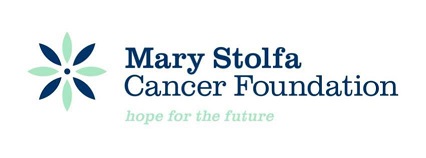| |
Infection
Most anti-cancer drugs affect the bone marrow, making it harder to make white blood cells, the cells that fight off many types of infections. So when you are going through chemotherapy treatment if can make you more likely to get infections. Your doctor will check your blood cell count often while your going through treatment. There are "colony stimulating factors", medicines used to recover white blood cells. Raising your white blood cell count greatly lowers the risk of serious infection.
Most infections come from bacteria found on your skin and in your mouth, intestines and genital tract. Sometimes the cause of infection is unknown, and even if you take extra care you may still get an infection.
But here are a few things you can do.
- Wash your hands often during the day. Be sure to wash them before you eat, after you use the bathroom, and after touching animals.
- Clean your rectal area gently but thoroughly after each bowel movement. Ask your doctor or nurse for advice if the area becomes irritated or if you have hemorrhoids. Also, check with your doctor before using enemas or suppositories.
- Stay away from people who have illnesses you can catch, such as a cold, the flu, measles, or chicken pox.
- Try to avoid crowds. For example, go shopping or to the movies when the stores or theaters are least likely to be busy.
- Stay away from children who recently have received "live virus" vaccines such as chicken pox and oral polio, since they may be contagious to people with a low blood cell count. Call your doctor or local health department if you have any questions.
- Do not cut or tear the cuticles of your nails.
- Be careful not to cut or nick yourself when using scissors, needles, or knives.
- Use an electric shaver instead of a razor to prevent breaks or cuts in your skin.
- Maintain good mouth care. Brush teeth with soft bristles frequently and rinse your mouth a few times a day with a baking soda and water solution.
- Do not squeeze or scratch pimples.
- Take a warm (not hot) bath, shower, or sponge bath every day. Pat your skin dry using a light touch. Do not rub too hard.
- Use lotion or oil to soften and heal your skin if it becomes dry and cracked.
- Clean cuts and scrapes right away and daily until healed with warm water, soap, and an antiseptic.
- Avoid contact with animal litter boxes and waste, bird cages, and fish tanks.
- Avoid standing water, for example, bird baths, flower vases, or humidifiers.
- Wear protective gloves when gardening or cleaning up after others, especially small children.
- Do not get any immunizations, such as flu or pneumonia shots, without checking with your doctor first.
- Do not eat raw fish, seafood, meat, or eggs.
- Before eating raw vegetables and fruits, make sure they're thoroughly washed.
Symptoms of infection:
Call your doctor right away if you have any of these symptoms.
- Fever over 100° F or 38° C.
- Chills, especially shaking chills.
- Sweating.
- Loose bowel movements.
- Frequent urgency to urinate or a burning feeling when you urinate.
- A severe cough or sore throat.
- Unusual vaginal discharge or itching.
- Redness, swelling, or tenderness, especially around a wound, sore, ostomy, pimple, rectal area or catheter site.
- Sinus pain or pressure.
- Earaches, headaches, or stiff neck.
- Blisters on the lips or skin.
- Mouth sores.
Report any signs of infection to your doctor right away, even if it is in the middle of the night. This is especially important when your white blood cell count is low. If you have a fever, do not take aspirin, acetaminophen, or any other medicine to bring your temperature down without checking with your doctor first.
The information on this web site is provided for general information only. It is not intended as medical advice, and should not be relied upon as a substitute for consultations with qualified health professionals who are familiar with your individual medical needs. The MSCF disclaims all obligations and liabilities for damages arising from the use or attempted use of the information, including but not limited to direct, indirect, special, and consequential damages, attorneys' and experts' fees and court costs. Any use of the information will be at the risk of the user.
| Chemotherapy Side Effects | Tumor Markers-Grades/Prognosis | Cancer Clusters | Emotional Disorders | End of Life Issues | Loss, Grief, and Bereavement | Living with Cancer | Radiation Therapy | Support Groups |
| Return Home | Fundraisers | Donations | Wall of Honor | Stories of Hope | Information on Specific Cancers (A-M) | Cancer Issues | Contact Us | Site Index |
|
|


